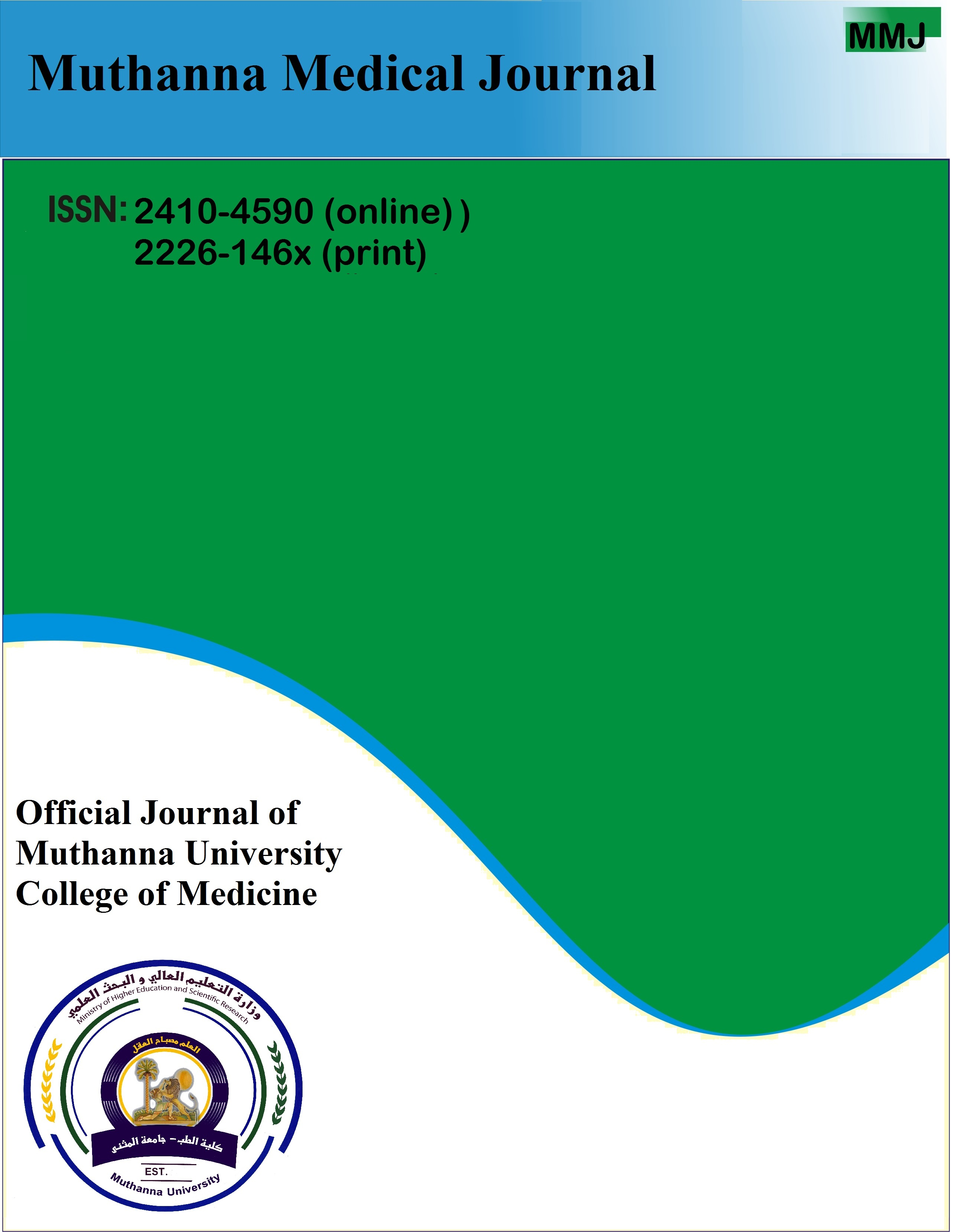Research article
Authors
Hailah othman habeeb 1![]() ,Aseel Jasim Mohammed, Bushra Mahmood
,Aseel Jasim Mohammed, Bushra Mahmood
Copyright © 2023 Habeeb, et al. This is article distributed under the terms of the Creative Commons Attribution License http://creativecommons.org/licenses/by/4.0), which permits unrestricted use, distribution, and reproduction in any medium, provided the original work is properly cited
Abstract
Neonatal jaundice (NNJ) is a leading cause of brain damage, physical and mental disability, and early death in many civilizations. Health workers need greater awareness. The research assessed primary care practitioners' knowledge of NNJ's description, causes, effective therapy, and consequences. The study was conducted at Diyala governorate's basic health institutions. The research ran from September 2017 through February 2018. Eight health clinics were randomly chosen among 98. After getting their agreement, community health workers were given self-administered questionnaires. Their identification wasn't necessary. Study excluded physicians. Ninety-two (92) of 100 health workers participated. Mean age (33.7yrs) and M:F ratio 2:4. Health workers' mean experience was (11.2 year). Only 25% of respondents could accurately define NNJ. 43.4 percent of NNJ test-takers pick the three right answers. In questioning Signs of severity " danger " in neonate with jaundice, 27.3% chose the five correct answers while 50% chose the three correct answers namely ABO incompatibly, Sepsis and Preterm labour in questioning what causes a NNJ, while 16% thought malarial infection and germs in breast milk or some insects are the cause of the NNJ. 68.4% choose phototherapy as an effective NNJ treatment. 46.9% of responders advised glucose water, 24.4% antibiotics. We conclude that primary health care practitioners in our area have knowledge gaps about newborn jaundice and its management and urge regular training workshops or seminars. This may lessen NNJ's influence on child health and well-being in underdeveloped nations.
Keywords: Knowledge, attitudes, practices, health workers, Ba'quba City, treatment, neonatal jaundice
- Olusoga B. Ogunfowora,Olusoji J, Daniel. Neonatal jaundice and its management: knowledge, attitude and practice of community health workers in Nigeria.BMC Public Health. 2006; 6:19.
- United Nations Development Programme The millennium development goals report 2014: Where do we stand? 2015. [cited 25 Oct 2015]
- Adebami OJ. Factors associated with the incidence of acute bilirubin encephalopathy in Nigerian population. Pediatr Neurol 2011;9:347 353
- Schwartz HP, Haberman BE, Ruddy RM. Hyperbilirubinemia: Current guidelines and emerging therapies. Pediatr Emerg Care. 2011;27(9):884–889.
- Britton JR, Britton HL, Beebe SA. Early discharge of the term newborn: a countinued dilemma. Pediatrics 2000; 94(3):291-5
- Smith AF, Beckett GJ, Walker SW, Rae PWH. Lecture Notes on Clinical Biochemistry. 6th ed, United Kingdom: Blackwell Science, 1998: 115
- Agranati PS, Dworkin PH. Child Health Supervision. In: Dworkin PH, ed. NMSPediatrics. 4th ed. USA: Lippicott Williams and Wilkins, 2000, 11
- Melton K, Akinbi HT. Neonatal jaundice : Strategies to reduce bilirubin-induced complications. Postgraduate Med 1999, 106(6): 167-78.
- MacMahan JR, Stevenson DK, Oski FA: Unconjugated hyperbilirubinemias. In: Avery’s Diseases of the Newborn. 7th Edition. Philadelphia, WB Saunders, 1998, pp 1014-20
- Adebola E. Orimadegun 1 and Adeola O. Ojebiyi1 , Primary health workers’ knowledge and practices relating to neonatal jaundice in Ibadan, Nigeria , Afr J Prim Health Care Fam Med. 2017; 9(1): 1081.
- Vreman HJ, Wong RJ, Stevenson DK. Phototherapy: current methods and future directions. Semin Perinatol. 2004;28:326–333.
- Johnson LH, Brown AK, Bhutani VK. System-based approach to management of neonatal jaundice and prevention of kernicterus. J Pediatr. 2002;140:377–386.
- Farouk ZL, Slusher TM, Danzomo AA, Slusher IL. Knowledge, Observation and Practices Related to Neonatal Jaundice in a Rural Community in Kano, Nigeria. J Trop Pediatr. 2021;67(1):fmaa134.
- Orimadegun AE, Ojebiyi AO. Primary health workers’ knowledge and practices relating to neonatal jaundice in Ibadan, Nigeria. Afr J Prim Health Care Fam Med. 2017; 9(1):e1-e7.
- Ezeaka CV, Ugwu RO, Mukhtar-Yola M, Ekure EN, Olusanya BO. Pattern and predictors of maternal care-seeking practices for severe neonatal jaundice in Nigeria: a multi-centre survey. BMC Health Serv Res. 2014;14:192.

